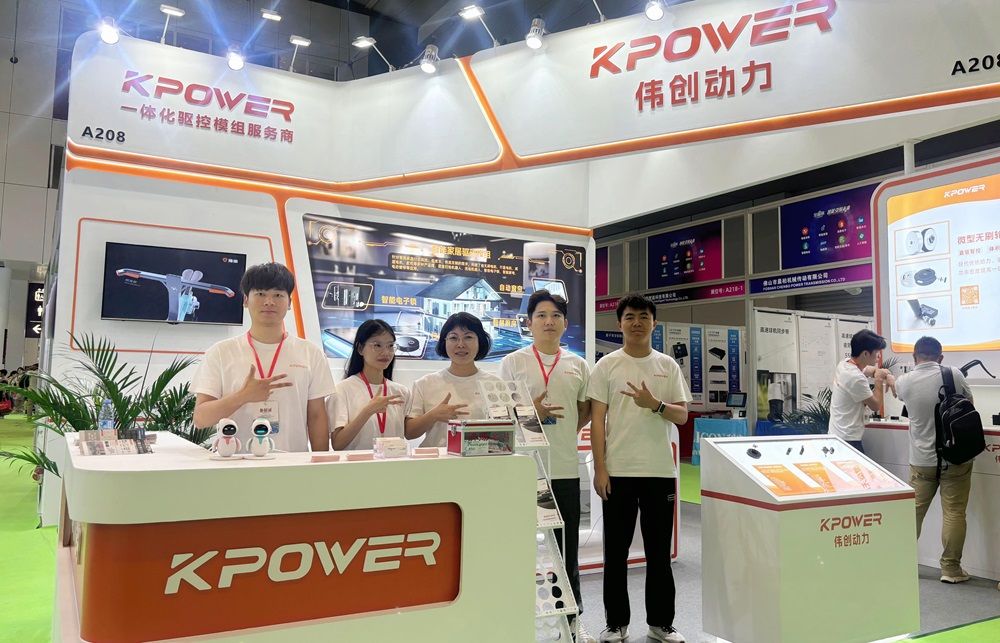In the age of rapid technological evolution, industries are constantly seeking smarter, more efficient ways to enhance productivity, precision, and reliability. Among the pivotal innovations driving this transformation are AC motors coupled with sophisticated servo control systems. Their synergy is not just a technological trend but a game-changer—offering unparalleled control, efficiency, and adaptability that reshape how machines are designed and operated across various sectors.

The Basics of AC Motors and Servo Control
At its core, an AC motor is a device that converts alternating current into mechanical energy, powering everything from household appliances to massive industrial machinery. These motors can be broadly classified into two types: induction motors and synchronous motors. Induction motors are the most common due to their ruggedness, simplicity, and cost-effectiveness, whereas synchronous motors are known for their precision and speed control.
Servo control, on the other hand, pertains to the precise regulation of motor position, velocity, and torque. It involves employing feedback mechanisms, such as encoders or resolvers, and complex algorithms to ensure that the motor follows a desired trajectory with minimal error. When integrated with AC motors, servo control transforms a standard driving machine into a highly responsive and accurate position and speed controller.
Why Combine AC Motors with Servo Control?
This union blends the robustness and energy efficiency of AC motors with the finesse and exactness of servo systems. Unlike traditional variable frequency drives (VFDs), which primarily focus on adjusting speed and torque based on load, AC servo systems deliver real-time feedback and correction, achieving flawlessly synchronized motion. This is crucial in applications requiring high levels of precision, such as CNC machining, robotic arms, packaging, and semiconductor manufacturing.
Advantages of AC Motor with Servo Control
Enhanced Precision: The closed-loop feedback system allows for meticulous control of position and velocity, ensuring tasks are executed with micro-level accuracy. In robotics, this means smoother, more reliable movements—crucial for delicate operations like assembly or microsurgery.
High Efficiency: AC motors excel in energy consumption, especially when paired with intelligent control strategies. They can dynamically adjust their output, reducing waste and lowering operational costs.
Robustness and Durability: AC motors are known for their toughness, making them suitable for demanding environments. When integrated with servo controls, they also benefit from protective algorithms that extend operational lifespan.
Versatility and Flexibility: Modern AC servo systems allow for scalable solutions, adaptable to various sizes, loads, and speeds. This flexibility makes them ideal for both small precision devices and large-scale manufacturing equipment.
Applications in Industry and Beyond
The application spectrum of AC motors with servo control is broad and continually expanding. In manufacturing, they are the backbone of CNC machining centers, where rapid, highly accurate movements are essential to produce complex parts with tight tolerances. In robotics, servo-driven AC motors enable precise articulation of arms and joints, facilitating delicate assemblig, packaging, or even autonomous navigation.
In the packaging industry, high-speed conveyor belts and pick-and-place operations rely heavily on servo-driven AC motors to synchronize movements without jitters, boosting throughput and reducing errors. Semiconductor fabrication processes require nanometer-level precision, where these motor systems make consistent, reliable performance possible.
Even the automotive sector is embracing this technology—electric vehicles utilize AC motors with advanced servo control to optimize acceleration, braking, and steering, leading to safer, more efficient automotive designs.
Emerging Trends and Future Possibilities
As industries push toward greater automation and smarter manufacturing, the role of AC servo motors is expected to grow even more significant. Developments in control algorithms—such as adaptive and predictive control—are making these systems smarter, enabling real-time learning from operational patterns for optimized performance.
Furthermore, integration with the Industrial Internet of Things (IIoT) allows for remote monitoring, diagnostics, and predictive maintenance, which can dramatically reduce downtime and maintenance costs. Wireless communication protocols and cloud-based data analytics are making these sophisticated systems more accessible and easier to manage.
Another promising avenue is energy-efficient smart drives that can dynamically modify motor parameters based on task requirements, further reducing power consumption without sacrificing precision or speed. As materials science advances, the development of more compact, lightweight, and durable motors will open new possibilities in lightweight robotics, aerospace, and medical devices.
Wrapping Up Part 1
The synergy between AC motors and servo control systems is shaping a future where industries are capable of achieving extraordinary levels of precision, speed, and efficiency. These systems are not just improving manufacturing but also inspiring innovations across robotics, automation, and even transportation.
In the next part, we'll dive deeper into specific technological components, real-world case studies of successful implementations, and insights on how to choose the right AC motor with servo control for your unique needs. We’ll also explore the challenges and considerations for integrating these systems into existing infrastructure, ensuring you’re equipped to leverage this transformative technology fully.
Leveraging innovations in modular drive technology, Kpower integrates high-performance motors, precision reducers, and multi-protocol control systems to provide efficient and customized smart drive system solutions.




































